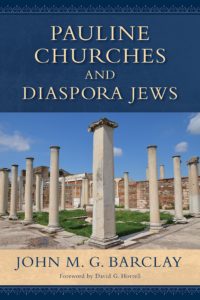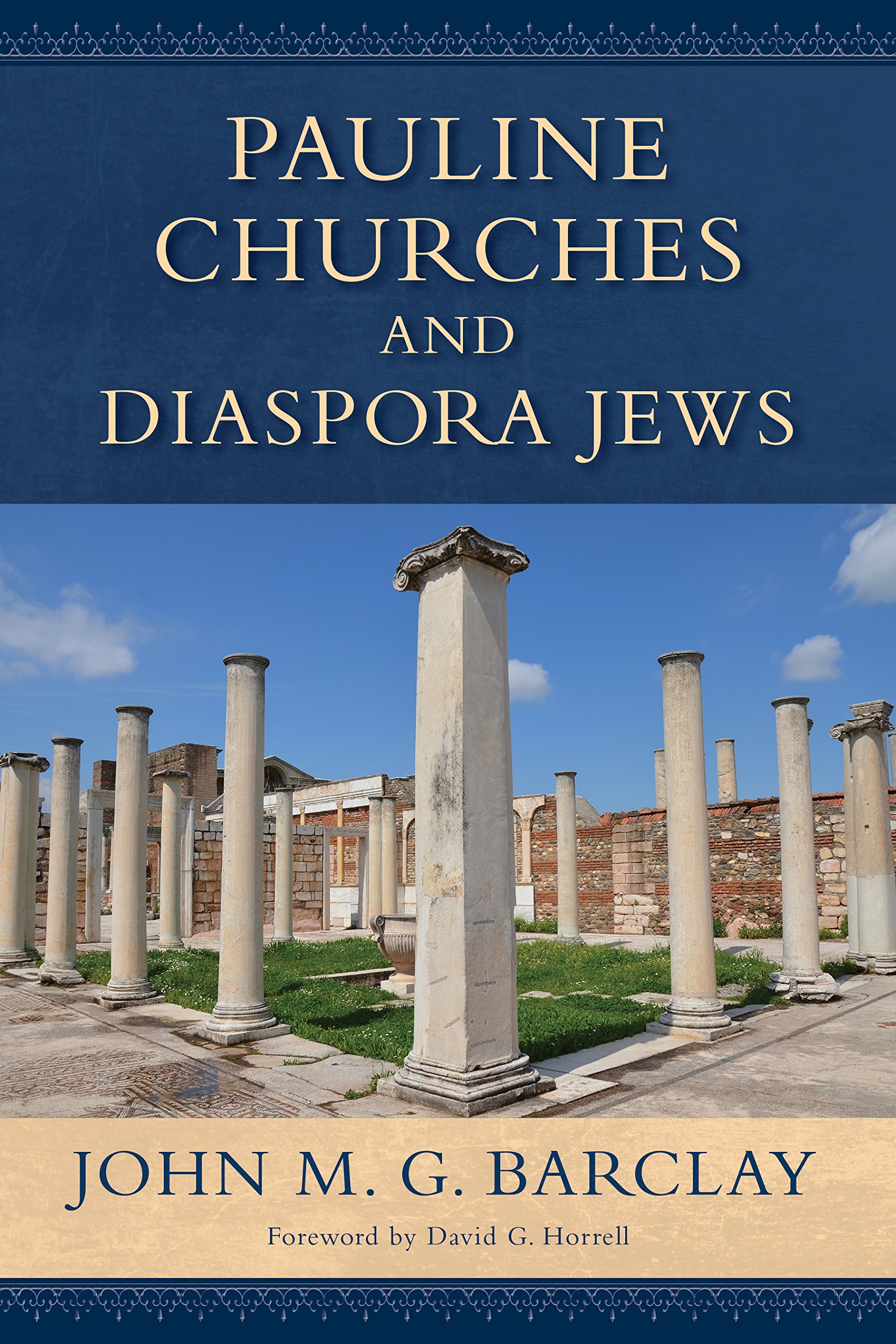 Pauline Churches and Diaspora Jews, by John Barclay (Eerdmans, 2016), 454 pages.
Pauline Churches and Diaspora Jews, by John Barclay (Eerdmans, 2016), 454 pages.
John Barclay is Lightfoot Professor of Divinity in the Department of Theology and Religion at Durham University. He recently published the blockbuster Paul and the Gift, probably the most publicized book of 2015.
This new book, Pauline Churches and Diaspora Jews, collects essays written by Barclay over the last 20 years. Three of the nineteen essays are new, while the others have been published before. Together, they constitute a rich depository of the social history of early Christianity and Diaspora Judaism.
Part I opens with a 30+ page introduction to the various issues addressed in the essays, which includes the history of research on social-history research, Pauline churches and diaspora Jews, the invention of Christian identity in the Pauline tradition, and finally Josephus, Paul, and Rome. These sections in the introduction correspond roughly to the other parts of the sets of essays in the book.
Part II contains seven essays on Pauline churches and diaspora Jews. This includes studies on the law and circumcision in Romans, group formation among these groups, applications of deviance theory to early Christianity and Judaism, and more. Part III studies the formation of early churches and their social identity in Paul’s writings. Part IV contains six essays that compare issues in Josephus and Paul, particularly those that involve Rome, such as whether Paul was anti-imperial and Josephus’s rhetoric in Rome.
This set of essays is significant for a few reasons. First, the studies in themselves are useful and of the highest caliber of scholarship. Second, these essays undergird much of Barclay’s larger works such as Paul and the Gift and his commentary on Josephus’s Against Apion. Having Barclay’s essays collected in one place will be useful for those who appreciate his work and want to examine further his argumentation.
Lastly, the three essays in this book that have not been published yet will make contributions to the field themselves. For example, the final essay in the volume argues that Paul was not intentionally anti-imperial, polemicizing against the emperor. Rather, the emperor was quite insignificant for Paul. This essay will likely be cited in many imperial-Pauline studies for years to come, and the other essays in this volume are of equal value.
For those who appreciate Barclay’s work and want a useful set of essays on the social history of early Christianity and diaspora Judaism, Pauline Churches and Diaspora Jews is a valuable resource.
Preview or buy it Amazon.


